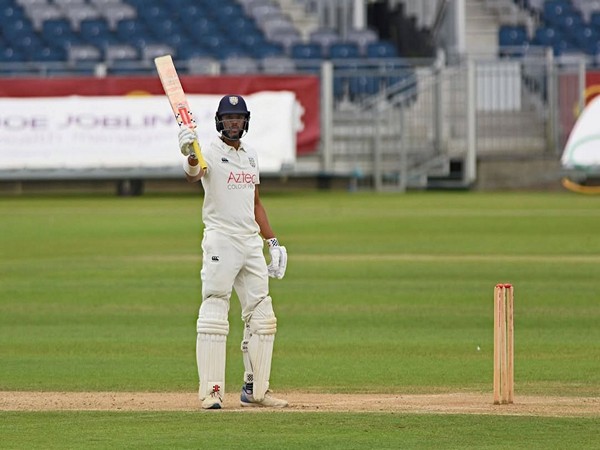Test cricket’s showpiece is a total mess – no wonder England don’t care

South Africa’s thrilling two-wicket win against Pakistan at Centurion on Sunday was significant because it saw the hosts qualify for the World Test Championship final for the first time.
This was a brilliant game of cricket in its own right but the match and the series was given added context and meaning by the fact that a place in next June’s final at Lord’s was at stake.
This is precisely why the International Cricket Council (ICC) introduced the tournament at the start of the decade and why its two winners – New Zealand and Australia – count it as a genuine world title alongside the Twenty20 and 50-over World Cups.
India, losers in both finals in 2021 and 2023, probably feel it is of less importance.
That would certainly be different, though, if they had actually got over the line in one of those two deciders at the Ageas Bowl and The Oval.
It doesn’t help that India are unlikely to reach the final next year, with Australia almost certain to join South Africa after their win against India in the Boxing Day Test.
For England, who play more matches than anyone, the World Test Championship (WTC) is pretty much an irrelevance.
The attitude of players, fans and media was summed up neatly by Test captain Ben Stokes during England’s tour of New Zealand when he admitted: “I can’t remember if I’ve ever given any real time to be specifically thinking about the World Test Championship to be honest because it’s utterly confusing.”
Those words resonated because most people are still wondering how this “utterly confusing” tournament that’s played between the top nine ranked Test nations actually works.
One look at the table for this cycle – which started from the 2023 Ashes and ends with Australia’s series in Sri Lanka in the New Year – shows just how much of a mess the execution of this well-meaning idea is.
Unlike any other league table in sport, this one is decided on percentage of points rather than actual points.
This is because there is no uniform set of fixtures. Every team plays a different number of games and series and so basing it purely on wins, draws and losses doesn’t work.
It is why England, sitting sixth, have no chance of qualifying for the final despite having more points (114) than South Africa (88).
The fact teams are deducted points for slow over rates in matches also takes away credibility from the whole project.
For example, England lost 19 of the 28 points they won in the 2023 Ashes for slow over rates. It meant their path to the final was pretty much blocked one series into the cycle.
Australia were deducted 10 points for slow over rates in the series but would have lost more had the ICC not changed their rules during the Ashes to increase the threshold for over-rate points deductions from teams bowling 120 overs a Test to 180 overs.
This essentially meant Australia, who under the old rules were behind the rate in three of the four Ashes Tests just like Stokes’ team, were only penalised in one of those matches because England generally batted for a shorter amount of time because of their high run rate.
It saw one team playing positive cricket sanctioned while the other got away with their negative tactics.
To make matters worse, this rule change that spared Australia further punishment was only agreed on after lobbying from Aussie opener Usman Khawaja. Even over-rate zealots can agree this was nonsense.
No wonder England couldn’t be bothered buying into the World Test Championship.
That is not to denigrate South Africa’s achievement.
Indeed, reaching the final in June is a huge boost to Test cricket in the country.
And nobody who cares about the health of the oldest format would see that as a bad thing.
Yet the Proteas’s path to the final was relatively easy compared to that of either England, Australia or India.
Maybe the little guy should get a leg up but there’s no doubt exclusively playing two-match series in this cycle as South Africa have smoothed their path to the final.
They will have played 12 matches overall by the end of the cycle – the same amount England have played since the start of last summer.
This shows what a mess the international calendar is.
The idea of a World Test Championship is a good one but changes need to be made. If all nine teams could have the same number of games in each cycle that would be a start.
How would that work? Just say every team is judged on a minimum number of games – maybe 12?
For this to happen maybe for the likes of England, Australia and India, only the first two Tests of each series should count towards the WTC and some series altogether are not included.
It is not perfect but it would be better than the status quo of points percentage which is impossible for anyone to work out without a calculator.
Does the indifference of England, the self-proclaimed saviours of Test cricket, to this concept matter? Not really.
Can you blame them? England teams are judged on Ashes series more than anything else and winning big series away from home.
The 2011 England team who were the last to top the ICC Test rankings were rightly lauded for that achievement.
But their Ashes win in Australia earlier that year and their historic series win in India in 2012 are what that team is really remembered for.
This current system is a total mess. It needs a radical restructure.
Yet for South Africa, reaching the final means everything.
That very reason is why the World Test Championship as a concept is here to stay regardless of its myriad faults.
Related
Women’s rights activists call for England to forfeit championship cricket…
England's men's cricket team is set to face Afghanistan on Feb. 26 in the International Cricket Council (ICC) Champions Trophy group stage.However, women's rig
After representing Italy, Emilio Gay eyes to break into England’s…
London [UK], December 31 : Emilio Gay is looking to earn a place in England's Test squad led by Ben Stokes in 2025 after a breakthrough season in the County Cha
Emilio Gay: England Test cricket hopeful on selection, playing for…
Could England's next Test match batter be a current Italy international?Durham's Emilio Gay certainly hopes so, with the left-hand
India’s 2025 cricket calendar: From tours to England and Australia,…
The year 2024 proved to be a rollercoaster for the Indian men’s cricket team, with memorable highs and disappointing lows. While India triumphed in the T20 Wo













